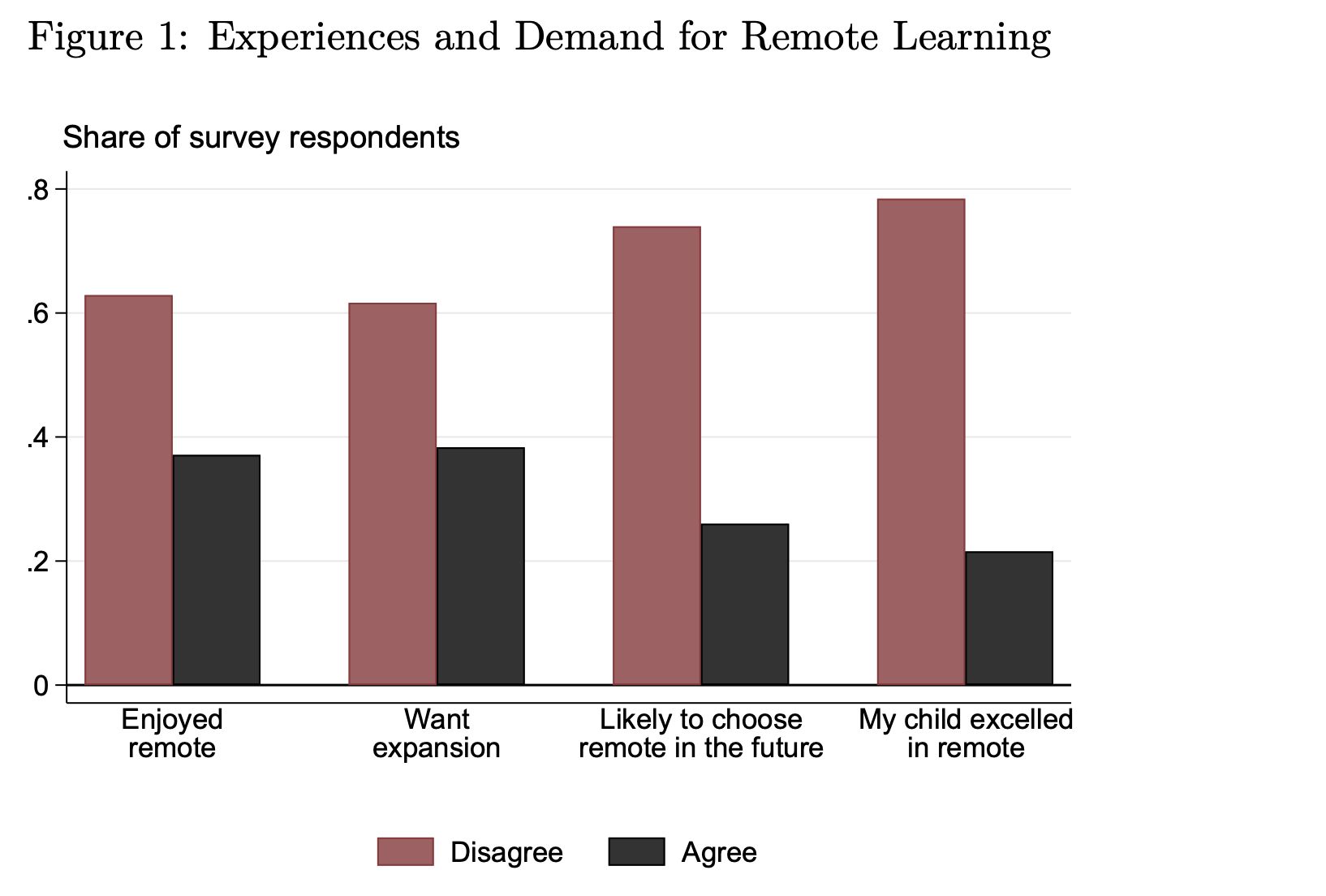New research from L.A. Unified suggests remote learning was an academic disaster for the average student. But some students did better after the switch to online learning.
And those students happened to be the ones whose parents rated remote schooling most positively. These parents were a decisive minority.

Why it matters: These findings suggest education options that work badly on average might work well for select groups of students. Those students’ parents have insight into whether an option is working for them. And creating more options can increase the chance that all students and families are matched with options that meet their needs.
Need to know
The rise in chronic absenteeism may have exacerbated students’ plummeting scores on national assessments.
Microschools, co-ops and other options are blurring the lines between schooling and homeschooling.
Schools’ marketing materials often inadvertently disparage the people they serve by portraying students’ needs as problems, and schools as solutions.
Summer school closures fuel seasonal declines in women’s employment.
The last word
In a healthy society, a web of institutions — families, schools, religious groups, community organizations, and workplaces —helps form people into kind and responsible citizens, the sort of people who show up for one another. We live in a society that’s terrible at moral formation.
– David Brooks, writing in The Atlantic, on America’s declining moral ecology.


